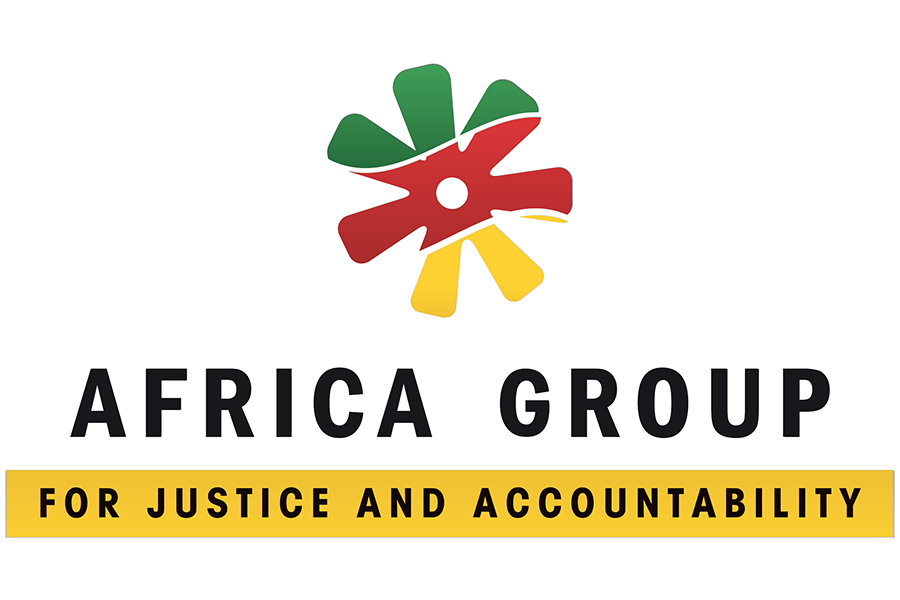The Africa Group for Justice and Accountability Welcomes President Elect’s Pledge for The Gambia to Remain in the International Criminal Court (download: PDF)
The Africa Group for Justice and Accountability (AGJA) welcomes the pledge of newly elected President of The Gambia Adama Barrow to keep the country a member of the International Criminal Court (ICC). While the AGJA reiterates its respect for the sovereign decision-making of states to join and withdraw from the ICC, it encourages all states to join the ICC. It is hoped that The Gambia’s decision to remain in the ICC will dissuade other states from withdrawing from the Court.
On 10 November 2016, The Gambia triggered the process of withdrawal from the ICC. It did so following an executive order issued by President Yahya Jammeh which notified the United Nations Secretary General of the country’s intentions to withdraw from the Court. At the time, AGJA member Hassan Bubacar Jallow expressed his “great dismay and disappointment” at the decision. Jallow, the former Chief Prosecutor of the International Criminal Tribunal for Rwanda and the Mechanism for International Criminal Tribunals, appealed to the government of The Gambia and President Jammeh to reconsider its decision. During the presidential election campaign in The Gambia, Barrow pledged to keep The Gambia a member of the ICC. Following his victory, President Barrow confirmed his intention to do so.
The AGJA expresses its support for President Barrow’s commitment to keep The Gambia within the ICC system and reiterates its view that The Gambia has, and should, continue to play a leading role in the development of international criminal justice. On behalf of the AGJA, Jallow declared that “The Gambia’s reversal of course should signal that African member-states, indeed all member-states, should remain within the ICC and work to make it stronger from within.” He added that The Gambia’s decision “clearly demonstrates that the International Criminal Court remains a relevant and impactful institution which enjoys widespread support on the continent.”
The Africa Group reiterates its view that concerns held by states regarding the ICC should be addressed by the Assembly of States Parties (ASP) and notes the important headway made in achieving respectful dialogue between African states at the ICC at the recent ASP, held from 16-24 November 2016 in The Hague.
In line with its Kilimanjaro Principles for Justice and Accountability, the AGJA continues to offer its expertise, mediation and facilitation to African states, the African Union, the ICC and all other relevant actors.
The members of the Africa Group for Justice and Accountability:
- Dapo Akande (Nigeria)
Professor of Public International Law, University of Oxford - Femi Falana (Nigeria)
Human rights activist and lawyer - Hassan Bubacar Jallow (Gambia)
Former Prosecutor at the International Criminal Tribunal for Rwanda and International Residual Mechanism for Criminal Tribunals - Richard Goldstone (South Africa)
Former Chief Prosecutor of the United Nations International Criminal Tribunal for Rwanda and the former Yugoslavia - Tiyanjana Maluwa (Malawi)
H. Laddie Montague Chair in Law, Pennsylvania State University School of Law - Athaliah Molokomme (Botswana)
Attorney General of Botswana - Betty Kaari Murungi (Kenya)
Independent Consultant on Human Rights and Transitional Justice - Mohamed Chande Othman (Tanzania)
Chief Justice of Tanzania - Navi Pillay (South Africa)
Former UN High Commissioner for Human Rights - Catherine Samba-Panza (Central African Republic)
Former Transitional President of the Central African Republic - Fatiha Serour (Algeria)
Director of Serour Associates for Inclusion and Equity - Abdul Tejan-Cole (Sierra Leone)
Executive Director of the Open Society Initiative for West Africa


